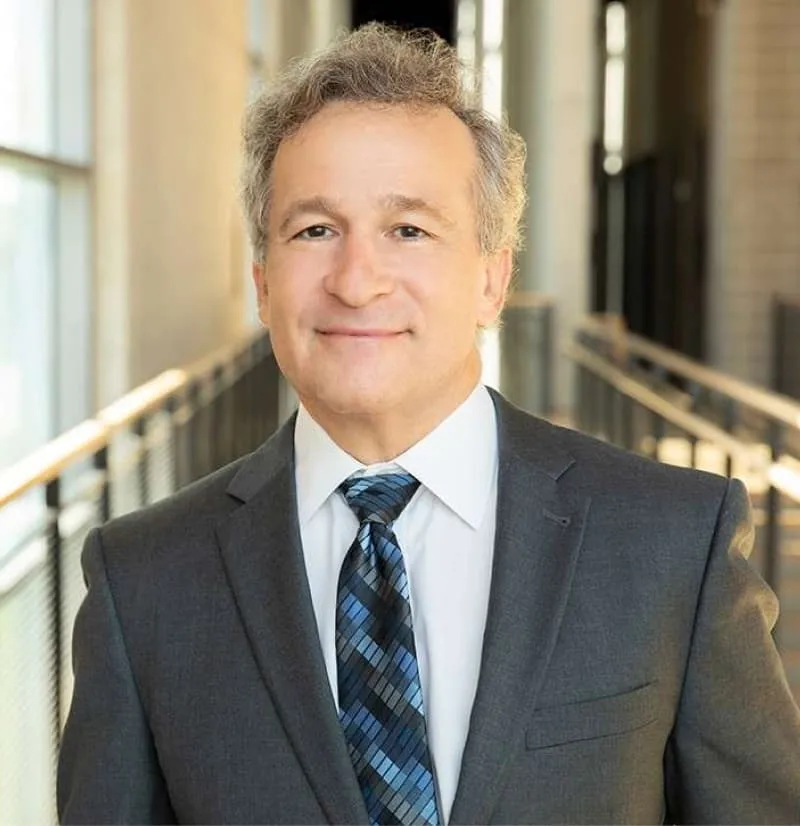The FDA has been in the news lately. For those returning from two month news-free National Geographic vacation in Antarctica, a compounding pharmacy in Massachusetts was supplying vials of preservative free methyl-prednisolone for epidural injections and much more. Some of these vials were tainted with fungus. Many people got sick. Some died. The FDA does not typically have any statutory authority over such compounding pharmacies. But, anything related to pharmaceuticals gone bad gets the attention of the FDA. So, it took us a while to get an answer from the FDA about a completely unrelated item – also in the news, but less so.
The cycling world went public with evidence about performance enhancing ‘doping.” Doping is defined broadly, and includes anabolic steroids, EPO, human growth hormone, and more. Whether doping was or is ubiquitous in the cycling world is not the subject of this blog. It’s the question of whether doctors can prescribe various pharmaceuticals and stay on the right side of the law.
Who has not seen the commercials for “Low T?” Low T is the pharmaceutical companies’campaign addressing low testosterone. Doctors are routinely drawing blood testosterone levels for males in their 50s or 60s complaining of low energy, poor libido, depression, and so forth. If the age adjusted levels of “T” are low, testosterone patch can be prescribed. As long as there is documentation that the age adjusted levels are low, federal law seems to support the ability of doctors to prescribe testosterone to this population. Even if the patient later embarks on a career on the masters cycling circuit once the libido is back in proper working order.
What about human growth hormone? Human growth hormone (“HGH”) levels decrease as we age. Some anti-aging clinics prescribe HGH ostensibly to help with “symptoms” of aging. As to whether HGH improves performance in the bed or in the gym remains unknown. What is not in doubt is that some doctors are prescribing it for these purposes.
Some physicians hold on to the commonly held belief they are immune from legal repercussions if their patients’ HGH levels remain low. Said another way, these physicians believe they can legally prescribe HGH for anti-aging so long as the patient’s levels are low compared to that of a robust 25 year old. Is this true? HGH is one of the few domains where the FDA has statutory authority over the practice of medicine. We posed the question directly to the FDA.
Their answer:
Generally, as you know, the Food and Drug Administration does not have authority over health care professionals or the practice of medicine. However, in the case of human growth hormones, we do.
The following section of the Federal Food Drug and Cosmetic Act provides the restrictions and penalties regarding the distribution of HGH:
- Title 21: Food and Drugs, Chapter 9–Federal Food, Drug, and Cosmetic Act, Subchapter III: Prohibited Acts and Penalties, Sec. 333. Penalties.
Section (e) lists:
(e) Prohibited distribution of human growth hormone
(1) Except as provided in paragraph (2), whoever knowingly distributes, or possesses with intent to distribute, human growth hormone for any use in humans other than the treatment of a disease or other recognized medical condition, where such use has been authorized by the Secretary of Health and Human Services under section 355 of this title and pursuant to the order of a physician, is guilty of an offense punishable by not more than 5 years in prison, such fines as are authorized by title 18, or both.
(2) Whoever commits any offense set forth in paragraph (1) and such offense involves an individual under 18 years of age is punishable by not more than 10 years imprisonment, such fines as are authorized by title 18, or both.
(3) Any conviction for a violation of paragraphs (1) and (2) of this subsection shall be considered a felony violation of the Controlled Substances Act [21 U.S.C. 801 et seq.] for the purposes of forfeiture under section 413 of such Act [21 U.S.C. 853].
(4) As used in this subsection the term “human growth hormone” means somatrem, somatropin, or an analogue of either of them.
(5) The Drug Enforcement Administration is authorized to investigate offenses punishable by this subsection.
Not surprisingly, anti-aging benefits are not considered “the treatment of a disease or other recognized medical condition, where such use has been authorized by the Secretary of Health and Human Services under section 355 of this title ….” In other words, while HGH levels do decrease over time, if the levels are typical for someone in his 50’s, a prescription of HGH to a 55 year old might be a problem.
But, we could not be sure. So, we probed deeper. If the doctor does little more than write a prescription and it is filled by a pharmacy, is the doctor at legal risk? In other words, is the writing of a prescription considered the “distribution” of HGH?
Here is the FDA’s answer provided to us earlier this month:
You asked whether a licensed physician writing a prescription for HGH for an unauthorized use, but not actually physically providing the HGH drug to a patient, would be a violation of 21 USC § 333(e).
The agency interprets “distribution” as used in 21 USC § 333(e) to include the writing of a prescription. In addition, all federal criminal statutes, including 21 USC § 333(e), are covered by 18 USC § 2:
“(a) Whoever commits an offense against the United States or aids, abets, counsels, commands, induces or procures its commission, is punishable as a principal.
(b) Whoever willfully causes an act to be done which if directly performed by him or another would be an offense against the United States, is punishable as a principal. ”
I hope that this information is helpful in answering your questions. Please let me know if you have further questions.
Sincerely,
Stephen King
Public Affairs Specialist
Food and Drug Administration
Center for Drug Evaluation and Research
So, there you have it.
As to whether low age-adjusted levels of HGH would provide a safe harbor, it is hard to say. The penalties for getting it wrong are severe. Caveat prescriber.





A well written Blog, as usual, that provides valuable information related to a controversial treatment for our aging population. No Physician prescriber can now claim that they did not know the answer to the legality of providing a prescription when the DEA knocks on the door of their office.
I want to commend Medical Justice for an exceptional article which is timely, extremely informative and legally important for physicians. Since, I have criticized your blogs, I thought you should know that I think this time you did a great job.
Good blog. How did we humans ever survive to the 21st century without “T” and HGH? Seems a miracle.
What about a doctor prescribing it for and administering it to himself? Pretty much of a victimless crime?
JH
I don’t think prescribing HGH administering it to yourself would change the analysis.
TITLE 21 REFERS TO CONTROLLED SUBSTANCES., IS HGH A SCHEDULED DRUG?
In an excellent summary in Jl Law Policy by Cronin:
HGH is not scheduled. The Controlled Substance Act expressly exempts HGH from its reach.
HGH is regulated under the Federal Drug and Cosmetic Act (FDCA).
One wonders why the FDA has this authority over the practice of medicine. As a plastic surgeon, I can attest that when they do have this authority, they tend to exercise it poorly.
I am a 60 y.o. male surgeon. I don’t need nor want added testosterone, growth hormone or any other artificial make-me-feel-good pill. I feel just fine the way I am but if I wanted or needed to use any or all those hormones I would not want the FDA, the CIA, the FBI and certainly not BIG BROTHER OR SISTER to get between me and the physician who is supposed to make my life better and worth living. I am fortunate to be able to leave this country and live elsewhere. But what about those who are not? Don’t we think that we care over regulated? Are we close to 1984 or what?
Excellent blog. Around 13 years ago, many prominent facial plastic surgeons were lecturing at national meetings about the anti-aging effects of HGH. In fact, most of these physicians were openly using HGH: even showing before and after photos of their faces and proclaiming numerous benefits after a year of regular use.
Government regulation, in my view, is not the right answer. There are numerous maladies associated with anabolic steroids, but other than needing to change your hat, or gradually increase the diameter of your headlight, I’m not aware of any significant health risks definitively associated with HGH. Am I wrong?
Neal Reisman, Tom Perls and Jay Olshansky wrote an article in JAMA about seven years ago after meeting at a series of Anti-aging Meetings I co-chaired for ASPS, the American Society of Plastic Surgeons. Neal is a MD, JD plastic surgeon from Houston, Tom is an MD who is head of the New England Centenarian Project, and Jay Olshansky, PhD is a professor at the University of Illinois, Biodemographer and one of the chief consultants to the Social Security Administration on aging.
They wrote, in essence, that prescribing growth hormone to “normal” aging adults who did not have a medical documented deficiency is a felony.
Provision or Distribution of Growth Hormone for “Antiaging”
Clinical and Legal Issues Thomas T. Perls, MD, MPH; Neal R. Reisman, MD, JD; S. Jay Olshansky, PhD JAMA. 2005;294:2086-2090.
A quote from their landmark article
Physicians and other health care professionals should be aware that current law explicitly prohibits the distribution of GH except for clearly and narrowly defined indications. Distribution for other uses, or off-label use, such as for antiaging, age-related conditions, and enhancing athletic performance, are illegal.2, 35, 43, 45 Although GH is not a schedule III drug, section 303 [333] f(5) of the FDCA clearly provides the Drug Enforcement Administration with the responsibility of enforcing the laws governing human GH.35
Given the clinical concerns and the legal issues involved, we believe that physicians or other persons who currently market, distribute, or administer GH to their patients for any reason other than the well-defined approved (ie, legal) uses of the drug, should not do so. Pharmaceutical companies that manufacture GH should play a more effective role in making physicians and the public aware of the circumstances in which the marketing and distribution of GH are legal and illegal. Federal and state agencies should be allocated resources to better deal with the illegal distribution of GH. Finally, the FDA and professional and lay organizations are in excellent positions to conduct awareness campaigns to educate physicians and the public about the legal and medical ramifications of GH use for antiaging.
The FDA’s restrictions on using HGH in adults seems limited to cases such as: “a growth-deficient child entering adulthood or a cancer patient whose glands have been crippled by radiation therapy.” Jim Edwards, Bad Medicine, Brandweek, Mar. 20, 2006, available at http://
http://www.brandweek.com/bw/search/article_display.jsp?vnu_content_id=1002199181.
It is widely agreed that the risks associated with anabolic steroids are greater than HGH. That’s why Congress converted to anabolic steroids to a scheduled drug under the CSA. Ironically, physicians have more latitude in prescribing schedul II to V drugs than HGH.
Probably would be helpful to have good studies on HGH looking at various objective metrics in adults. But, this would require significant red tape to get started – akin to studying a schedule I compound for helping patients cope with terminal illnesses.
TO MEDICAL JUSTICE: PLEASE CLARIFY– HGH IS NOT A SCHEDULED NOR CONTROLLED DRUG.” THE CONTROLLED SUBSTANCE ACT EXPRESSLY EXEMPTS HGH FROM ITS REACH. HGH IS REGULATED UNDER THE FEDERAL DRUG AND COSMETIC ACT .”HOWEVER, CONVICTION FOR VIOLATION OF THE RESTRICTION ON HGH IS PUNISHIBLE UNDER THE CONTROLLED SUBSTANCE ACT FOR THE PURPOSES OF FORFITURE UNDER SECTION 413——DO I HAVE THIS RIGHT? IT IS NOT A CONTROLLED SUBSTANCE BUT ITS USE IS PUNISHIBLE UNDER THE CONTROLLED SUBSTANCE ACT?—THANKS FOR ANY CLARIFICATION.
As best I understand it, HGH is not addressed by the Controlled Substance Act.
From the DEA, Office of Diversion Control:
“Human growth hormone is not controlled under the Controlled Substances Act (CSA). However, as part of the 1990 Anabolic Steroids Control Act, the distribution and possession, with the intent to distribute, of hGH “for any use…other than the treatment of a disease or other recognized medical condition, where such use has been authorized by the Secretary of Health and Human Services…and pursuant to the order of a physician…” was criminalized as a five-year felony under the penalties chapter of the Food, Drug, and Cosmetics Act of the FDA.”
My read of the above is that the potential of 5 year jail time is NOT part of the Controlled Substance Act.
Then what to make of Section (e) (3) above which states: Any conviction for a violation of paragraphs (1) and (2) of this subsection shall be considered a felony violation of the Controlled Substances Act [21 U.S.C. 801 et seq.] for the purposes of forfeiture under section 413 of such Act [21 U.S.C. 853]?
This simply means that although not covered by the CSA, if a person is burned with conviction for HGH distribution, other penalties can attach – such as forfeiture of assets – as codified in the CSA.
I guess I am scratching my head on this too. The bigger point is that there are penalties for jail time and forfeiture of assets.
I have more bad news, the government is hiding the truth from us not only re; IRS, Fast and Furious and Bengazi, but also about the efficacy of HGH for specific indications and those of general anti-aging! Motivation is clear, if Obamacare or Medicare had to pay for this proven anti aging (aging is a disease) treatment the treasury would be double-broke! If you doubt the evidence just talk to leading doctors and researchers including these published articles: (a small sample below)
http://www.ncbi.nlm.nih.gov/pubmed/10984252
http://www.ncbi.nlm.nih.gov/pubmed/7794069
http://www.ncbi.nlm.nih.gov/pmc/articles/PMC2439518/
This article 1 reviews the effects of GH on burn wound repair and gut healing. Studies on GH have shown a significant reduction in wound-healing times in burned patients given GH at a dose of 0.6 IU/kg/day (0.2 mg/kg/day). At this dose, other studies have shown no increase in mortality, and a number of beneficial effects in critically burned children have been demonstrated. Animal studies have suggested that insulin-like growth factor I (IGF-I), stimulated through the GH axis, plays an important role in the reconstitution of intestinal epithelial integrity following mucosal injury. Many encouraging papers report positive results regarding both the efficacy and safety of GH and IGF-I, therefore warranting continued investigation.